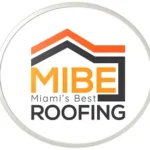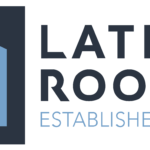The Importance of Regular Roof Inspections for Commercial Properties
Commercial properties, such as shopping centers, office buildings, and restaurants, rely on their roofs to protect vital assets and operations from inclement weather, extreme temperatures, and other environmental factors. A well-maintained roof is essential for building integrity, energy efficiency, and overall safety. (Roof Maintenance: Why It Matters for Commercial Buildings)
Regular roof inspections are crucial for identifying problems before they become major, costly issues. A scheduled inspection can detect minor repair needs, such as crumbling or missing shingles, and address them before they require extensive and expensive repairs or even replacement. Inspecting the roof regularly also increases the lifespan of the entire structure, reducing the possibility of premature deterioration. Effective roof inspections can also decrease the risk of water leakage, which can lead to mold growth, structural damage, and costly repairs (Why Regular Roof Inspections are a Must for Businesses).
Commercial property owners underestimate the importance of regular roofing inspections, often neglecting to schedule routine checks to identify potential issues. This disregard can lead to costly unforeseen expenses, prolonged office closures, and even complete building shutdowns. Effective roof inspections can also optimize energy efficiency, reducing operational costs and environmental impact.
Moreover, regular roof inspections can help identify potential leaks and water damage, prevent mold growth, and inspect flashing and gutters as part of a comprehensive audit. This proactive approach prioritizes the well-being and longevity of the building envelope, ensuring a safe work environment for employees and building occupants. The Best Practices for Commercial Roofing Inspections
Commercial roofer experts recommend checking the roof at least four times a year, before the onset of each meteorological season. This may include a visual inspection once a month, with regular inspections during the spring before summer storms and in advance of winter snowfall season. Additionally, inspect around chimneys, vents, and skylights and ensure that flashing and rainwater systems are functioning suitably.
A comprehensive investigation of the roof’s composition, including the condition, quality, and age, is essential for identifying aging, damaged, or obsolete components. Commercial property administrators should also consider the structure’s specific requirements, i.e., wind, lightning, and seismic zones’ unique demands. Enhancing Energy Efficiency through Innovative Roofing Solutions
Businesses can optimize energy expenditures by incorporating energy-efficient techniques and materials into their insulation, such as reflective foils, radiant barrier foil, and solar panels onto their roofs. Additionally, upgrading to more efficient ceiling fans, installing LED retrofit kits, and implementing demand response programs can significantly help reduce energy consumption.
Further, commercial property owners investing in green roofs, gardens, or living walls by integrating vegetation, can further reduce energy consumption, support local ecosystems, and incorporate additional benefits like improved lighting, air quality, acoustics, and biophilic design. Many companies are adopting sustainable operations and incorporating eco-friendly buildings, making it essential to design and maintain energy-efficient envelopes. The Benefits and Cost Savings of Regular Roofs Inspections
Apart from the environmental benefits mentioned earlier, regular roof inspection and maintenance can also boost property values, enhance marketing and sales, and decrease downtime. In addition to energy savings, a good roof can reduce insurance prices, minimize repair costs down the line, and even safeguard the integrity of the actual structure.
Commercial property businesses that prioritize regular roof assessments and maintenance can expect both immediate and long-term perks, including increased property investment, improved energy efficiency and cost savings, and optimal business operations. Consulting with a Professional Team for Roof Inspections Services
When it comes time to schedule a roof assessment, it is crucial that property owners work with professionally trained and experienced roofing installers, who can skillfully identify potential issues prior to major problems arising (e.g., water collection, structural damage, insect infestation). These highly trained professionals can also tailor a customized maintenance plan incorporating regular inspections, repairs, sealants, and coatings addressing the specific needs of diverse commercial properties.
In Conclusion, regular roof inspection is a vital aspect in maintaining the integrity, integrity, and overall well-being of commercial properties. Ensuring the longevity of assets, reducing costs, creating a safe work environment and increasing property values, proper roof maintenance is a clear and crucial step in reducing risks and enhancing overall benefits. freeslots dinogame telegram营销




